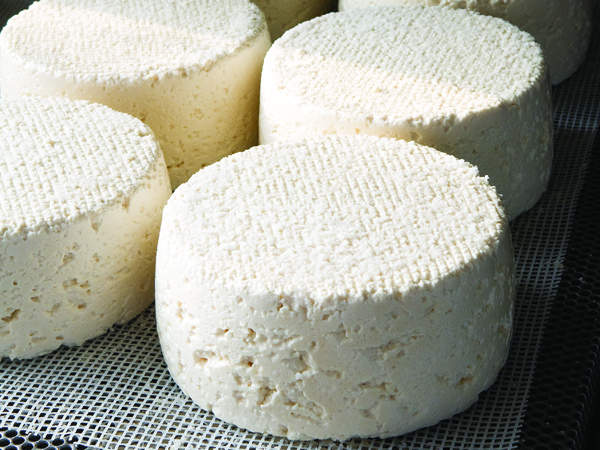 A local dairy farm turns out killer cheese, and a few surprises
A local dairy farm turns out killer cheese, and a few surprises
On his first day of kindergarten, the teacher asked Ken Miller what he wanted to be when he grew up. It was an easy answer, since he could only imagine becoming one thing: a farmer.
Miller’s grandfather had been a farmer, but the last cows were sold by the time Ken was 10, and his father was a schoolteacher. At 14, he started raising bull calves that he bought from a friend’s father. After college, Miller leased more land and added corn and soybeans to his portfolio. But, even then, his goal was to become a dairy farmer.
Miller bought his first heifers in Spring 1980. Over the next decade land values in Chester County skyrocketed and the economics of dairy farming changed. Ken and his wife Sue were at a crossroads: they could succumb to industry pressure and grow their herd, taking on debt and hiring employees, or they could get creative.
At this point, the Millers only sold to the commodities market, but they had always harbored a desire to sell directly to their neighbors. They began experimenting, and offered a produce CSA for a few years. They were overwhelmed by the positive response. “People wanted to connect with the farm,” says Ken. “We knew we were good neighbors and all, but we didn’t realize that if we offered something that we grew, people would line up to buy it.” Members eventually started inquiring about buying milk, cheese and ice cream. The Millers already had neighbors in the yogurt and ice cream businesses, so cheese seemed like the obvious choice.
Sue did some research and discovered a PASA-sponsored course on artisanal, raw milk cheesemaking. “I had missed the deadline to sign up,” she explains. “So, I called them up and said, ‘You have got to get me in to this class, no matter what.’”
The Millers used neighbors for market research, and they loved Birchrun’s cheese from the beginning—both a “Birchrun Blue” and “Highland Alpine,” a delicious, nutty alpine-style hard cheese. (“They still get home delivery,” jokes Ken.) The business has blossomed from there. Birchrun now offers “Fat Cat,” a creamy, milder cheese that began as a happy accident after temperature problems in the aging room, and in the summer when the cows’ milk is especially low in fat, they roll out the seasonal Matilda Summer Tomme. “It’s really just been a whirlwind for us,” says Sue. “We were so lucky to be able to stay in this region where people think agriculture is dying. It’s really not. It’s just reinventing itself.”
Birchrun Hills also continues to reinvent itself, with the help of the Millers’ two sons. Up until two years ago, they were selling their bull calves to the livestock market, and getting five dollars for 100-pound calves. It cost them more to haul them to the sale. Their son Randy had an idea and approached Sean Weinberg at nearby Restaurant Alba. Weinberg promised Randy that if he raised the veal, Alba would buy it. The veal is 100 percent grass-fed and grass-finished, and the animals are raised in the same humane manner as their female counterparts. Weinberg fell in love with the product, and Randy is paying his way through Cornell.
Then their younger son Jesse, a junior in high school, learned about world-famous Parma hams, and the fact that they were fed by-products from the parmesan cheesemaking process. He thought they should try the same thing at Birchrun Hills, so they brought several pigs, and now sell that meat alongside the veal and cheese at local farmers’ markets.
Birchrun Hills’ cheese is phenomenal because the milk is. Their pastured heifers eat only feed that the Millers grow themselves, and have a lifespan over twice that of an average dairy cow. “The care and welfare of our cows is really important to us,” says Sue. “They’re the backbone of our business. They were born here; their mothers were born here. We’re really connected to them. How we care for them, how we feed them, how we milk them is all very important, because it adds to the quality of the milk, which adds to the quality of the cheese.”

